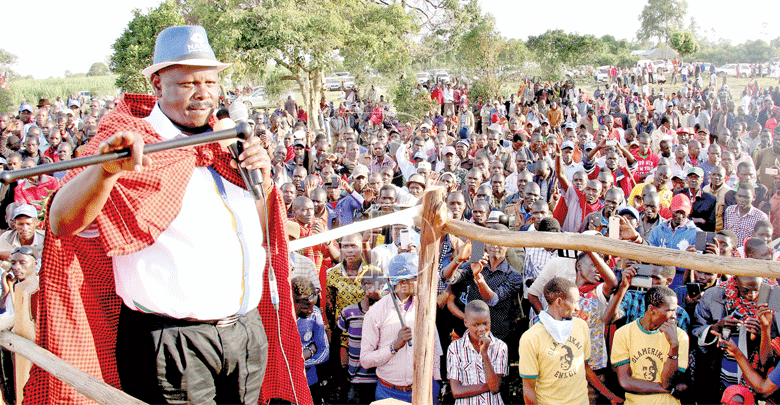Once considered as God’s bathroom owing to abundant flow of water and green life, conservation experts now believe it might take more than a century to return Mau Forest Complex—Kenya’s biggest water tower—to its original status.
And, that is only possible if the government manages to stop wanton logging and destruction of forest cover, unauthorised occupation and encroachment.
The revelation comes in the wake of another round of “forcibly” eviction this time targeting more than 50,000 villagers who encroached on the 42,000-hectare Maasai Mau about seven years ago.
Avenue to dialogue
Some Rift Valley politicians led by former Bomet governor Isaac Ruto and former Cabinet minister Franklin Bett have called on the government to halt the eviction plan saying innocent villagers stand to suffer.
Accompanied by former MPs Zakayo Cheruiyot (Kuresao South), Magerer Lang’at (Kipkelion) and Musa Sirma (Eldama Ravine), Ruto said the eviction should be done in a humane manner.
“As we work to protect the environment, we urge President Uhuru Kenyatta to halt this plan and create an avenue for the two communities (Maasai and Kalenjin) to dialogue and have an amicable way which will protect the rights of targeted families and their children,” said Magerer.
Within government circles, there is growing concern that it might not be possible to return Mau to what it was before the mass encroachment in 1990s and early 2000s because indigenous trees as old as 200 years were mowed down.
An official who sought anonymity and who was part of a security team that made a fact-finding mission at Maasai Mau last year said they were all shocked by the level of carelessness exhibited by Kenya Wildlife Service officers on the ground.
Forest
But Rift Valley Regional Commissioner George Natembeya told People Daily the exercise which is expected to start “any time from now” will be swift, adding that necessary arrangements have been put in place.
He said the government will not relent until all illegal settlers are removed saying they are doing this for posterity.
“We are seeing adverse consequences of forest destruction; rivers are drying and animals are dying because of lack of water and pasture. Tourism particularly in Maasai Mara has also taken a hit because these things are inter-connected,” he said.










